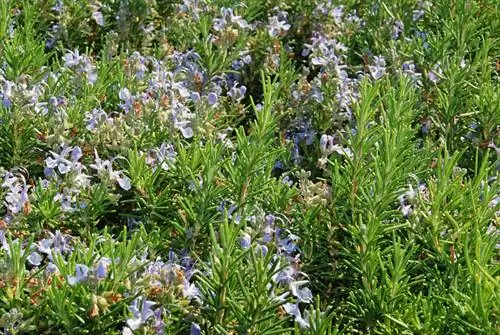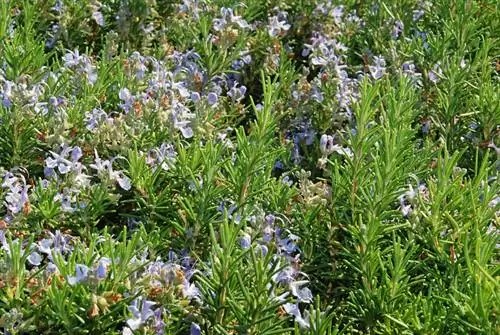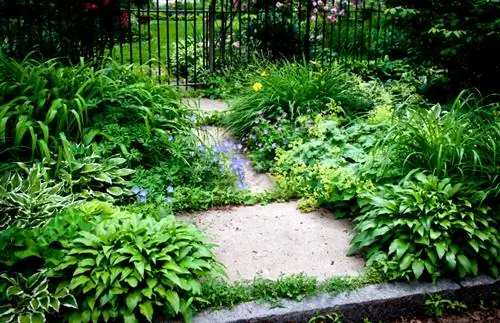- Author admin [email protected].
- Public 2023-12-16 16:46.
- Last modified 2025-01-23 11:20.
The aromatic rosemary (Rosmarinus officinalis), an evergreen spice bush from the mint family, is also one of the most popular culinary herbs in our latitudes. The plant, which originally comes from the Mediterranean areas, can be cultivated both in the garden and in the pot with little effort.

Where should rosemary be planted in the garden?
The ideal location for rosemary (Rosmarinus officinalis) is a sunny, protected place, e.g. on a south or west-facing wall or house wall. The soil should be lean, well-drained, sandy-humic, neutral to alkaline and rather dry. Avoid waterlogging and shadows.
The sunnier the better
Rosemary is used to plenty of sun and warmth in its homeland - which is why it prefers the same location in the home garden. The sunnier and more sheltered the place you choose, the more comfortable he feels. If the soil conditions are appropriate, the herb also grows very well in partially shaded but bright locations. You shouldn't grow it in a shady place, as it will become sick and possibly die. A wall or a house wall is best suited - these offer a certain degree of protection from any bad weather - towards the south or west. Rosemary is only partially hardy.
Lean and dry soil
In addition to a sunny location, the rosemary bush also needs soil that is as lean and well-drained as possible. The ideal rosemary soil is loose, sandy and a little humic with pH values in the neutral to alkaline range. A good lime content ensures that the herb feels at home, but under no circumstances should the soil be acidic or too clayey. Heavy soil stores water well, which rosemary doesn't like at all - it prefers it to be as dry as possible. Waterlogging in particular causes the roots to rot and the plant ultimately dies. However, it thrives very well on stone walls or in gravel beds.
Tips & Tricks
In the herb bed, rosemary feels very comfortable with other Mediterranean herbs such as thyme, lavender, sage or oregano. These have similar needs in terms of location and care and therefore complement each other perfectly. Mustard, radish or rapeseed, on the other hand, are unsuitable garden neighbors.






